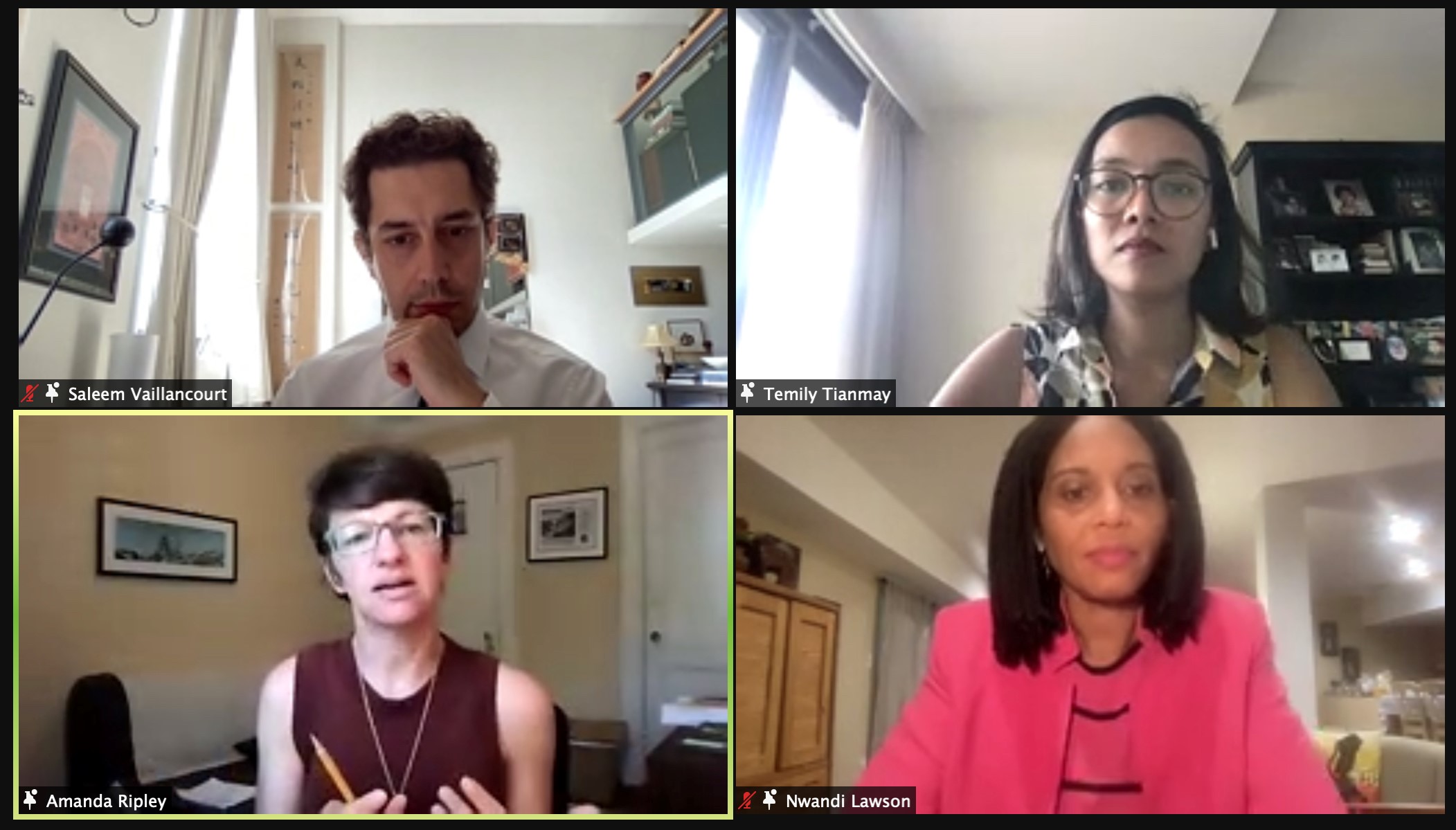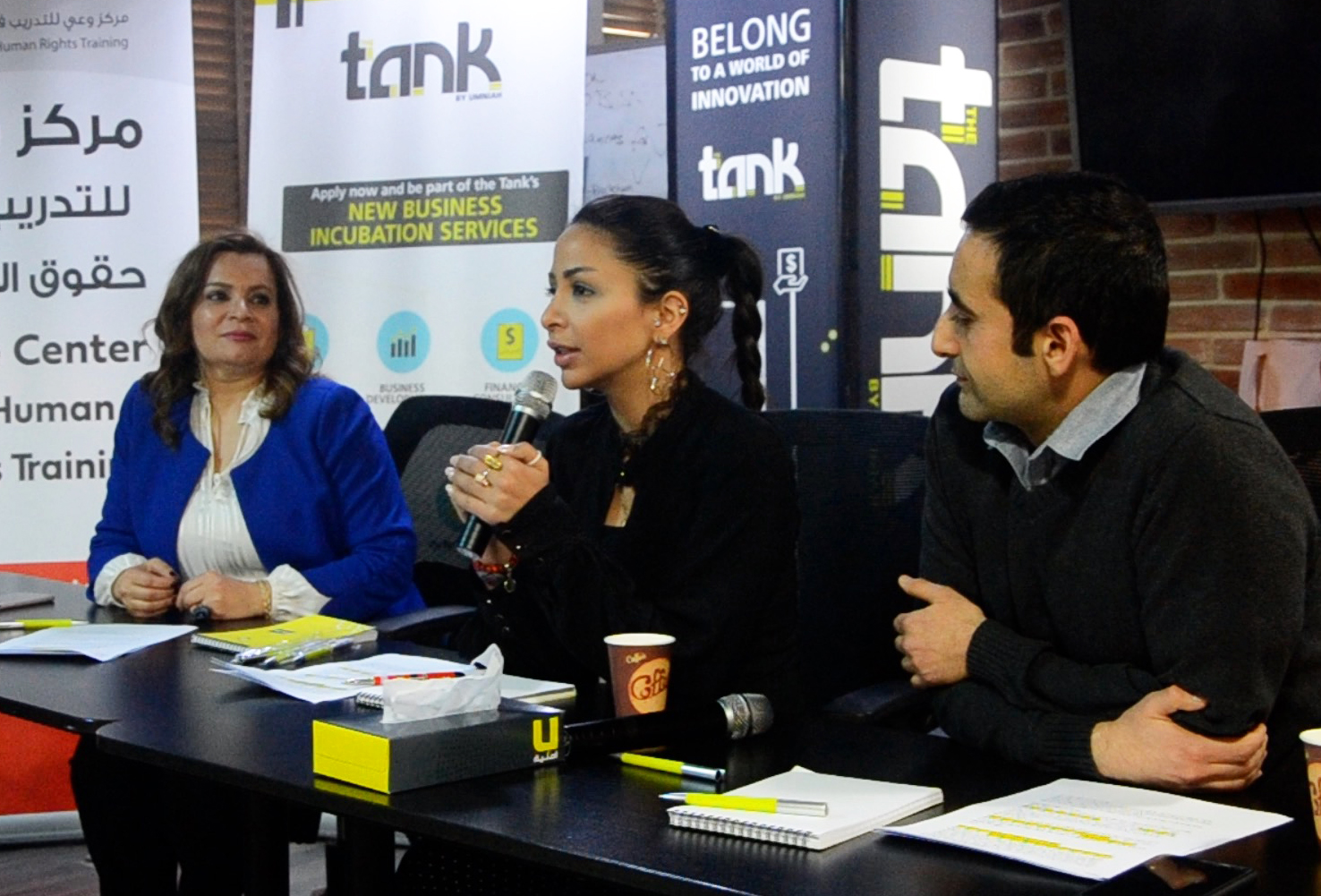
جامعهٔ جهانی بهائی، نیویورک — اخیراً جامعهٔ جهانی بهائی، گروهی از روزنامهنگاران را گرد هم آورد تا به بررسی این بپردازند که چگونه فعالیتهای سازمانها و افراد در رسانهها میتواند به نتایج سازنده یا تفرقهانگیز منجر شود و نقش رسانهها در پیشرفت اجتماع را در نظر بگیرند.
در سخنرانی افتتاحیه، آقای سلیم ویلانکور (Saleem Vaillancourt)، تسهیلگر این جلسه گفت: «روایتهای ما دنیایی را که در آن زندگی می کنیم شکل می دهند.»
«رسانه میتواند در ایجاد توافق آرا، وحدت، تولید دانش و فهم مشترک سهیم باشد و اینگونه به مردم در یافتن راه حلهای ماندگار و موثر برای مشکلات پیش رویشان کمک کند.»
آقای ویلانکور قسمتی از آثار بهائی را در مورد کارکرد رسانه در پیشرفت تمدن نقل کرد: «اوراق اخبار طيّار روزنامه … اعمال و افعال احزاب مختلفه را می نماید هم می نماید و هم ميشنواند مرأتی است که صاحب سمع و بصر و لسانست ظهوريست عجيب و امريست بزرگ ولکن نگارنده را سزاوار آنکه از غرض نفس و هوی مقدّس باشد و بطراز عدل و انصاف مزيّن و در امور بقدر مقدور تفحّص نمايد تا بر حقيقت آن آگاه شود و بنگارد.»

شرکتکنندگان این مفاهیم را در بستر شرایط اجتماعی مختلف بررسی کردند. خانم آماندا ریپلی (Amanda Ripley)، روزنامهنگار تحقیقی مجلهٔ آتلانتیک توضیح داد که چگونه آن نوع خبرنگاری که تلاشهای جوامع برای غلبه بر چالشها را پوشش میدهد «میتواند به مردم کمک کند راه دیگری را برای تعامل تصور و تجسم کنند.»
او با اشاره به انواعی از خبرنگاری که بدون بررسی راهحلها تنها به مشکلات میپردازند گفت: «وقتی مردم احساس میکنند هیچ امیدی وجود ندارد، ممکن است تسلیم شده یا بدبین شوند. اگر تلاشها جهت حل مسائل را به خوبی پوشش دهید مردم بیشتر جذب شده و با محتوای شما ارتباط برقرار میکنند.»
خانم ریپلی افزود: «راهحلی که در یک خبر میآید لزوماً نباید نتیجهبخش بوده باشد. اینکه جامعهای برای حل مشکل خود تلاش می کند نشانهٔ عاملیت است و این برای افراد از تمام طبقات اجتماعی جذابیت دارد.»
خانم تمیلی تیانمی (Temily Tianmay) پژوهشگر و روزنامهنگار اهل مالزی به بررسی میزان دقت تصاویری پرداخت که در اخبار از مردم ارائه داده میشود. وی بیان کرد تکامل رسانهها منوط به توانایی خبرنگاران و خبرگزاریها در ترویج شرافت انسانی است.

«زاویهٔ شرافت انسانی به ما اجازه میدهد به شیوههای جدید به ایجاد وحدت بپردازیم. اگر ما هر فردی را به عنوان موجودی شریف و منبعی از بینش ببینیم، چه طور با مصاحبهشوندگان و یا خبرنگارانی که رویهی بسیار متفاوتی با ما نسبت به کارشان دارند رفتار خواهیم کرد؟»
در این جلسه همچنین نقش روزنامهنگاران به عنوان عاملان بهبود اجتماع و میزان حضور و فعالیت آنها در جوامع محلیشان که از آنها گزارش تهیه میکنند مورد بحث قرار گرفت.
خانم نواندی لاوسون (Nwandi Lawson)، روزنامهنگار سابق سی.ان.ان گفت: «ما باید متوجه باشیم که [خبرنگاران] بازیگران اجتماعی هستند. ما بخشی از اجتماع خود هستیم. ما موظف هستیم حقیقت را جستجو کنیم.»
این جلسه با عنوان «رسانهها، روایت، مردم و رهبرانشان» با توجه به افزایش علاقهمندی به ایجاد انگیزه برای تغییرات اجتماعی مهم توسط جامعهٔ جهانی بهائی برگزار شد. این حیطهای است که همچنین دفاتر امور خارجی بهائی در کشورهای مختلف جهان به آن میپردازند.

دفتر روابط عمومی بهائیان ایالات متحده بحث و گفتگوهایی را در مورد اینکه رسانهها چگونه میتوانند به اجتماع برای فرا رفتن از دوقطبیها در مسائل اجتماعی کمک کنند، برگزار میکند. دفاتر هند و انگلستان به گفتگوها در مورد اینکه رسانهها چگونه میتوانند توجه را به قدرت دین برای کمک به پیشرفت اجتماعی معطوف کنند و در عین حال دین چگونه میتواند در دستیابی به متعالیترین اهداف خود موثر باشد، تحرک بخشیدهاند. در اردن، دفتر امور خارجی بهائی در حال بررسی نقش خبرنگاران در ترویج عدالت است و در استرالیا، تمرکز بر این است که رسانهها چگونه میتوانند به انسجام اجتماعی بیشتر کمک کنند.